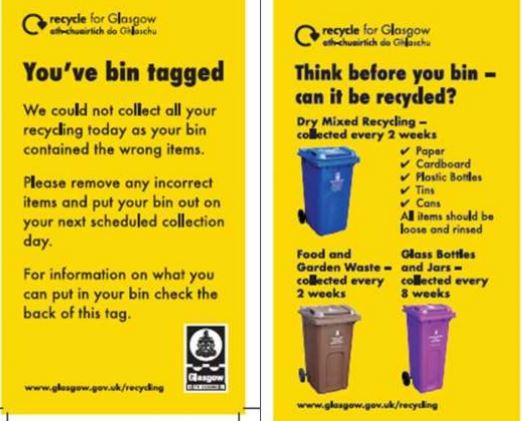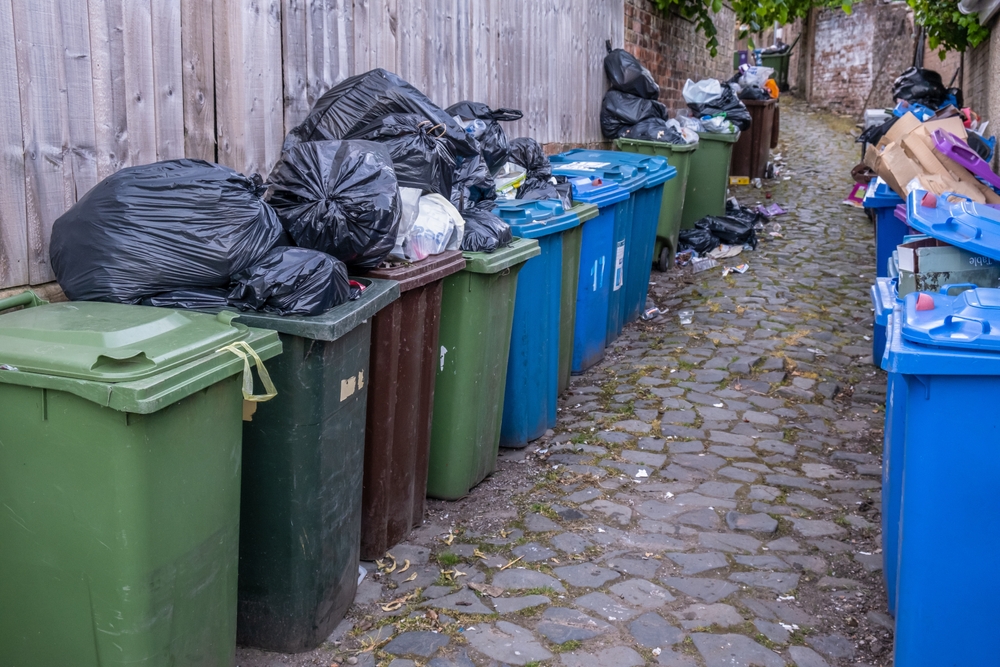The plans formed part of a report which was noted by the council on 22 November at a meeting of Glasgow’s environment, sustainability and carbon reduction city policy committee.
Plans to confiscate repeatedly contaminated bins were part of a package of proposals which also includes the introduction of a twin-stream recycling service.
All properties in Glasgow currently have a blue bin for commingled recycling and some properties also have their glass bottles and jars and food and garden waste collected.
According to documents which went before the committee, contamination is a “significant issue”, with around 50% of recycling contaminated in some areas.
Glasgow will introduce its twin-stream recycling service for kerbside properties over a nine to 12-month period from April or May 2023 and will introduce its contamination policy at the same time. The plans are to be approved at a later date.
Levels
Documents which went before the committee show Glasgow classifies contamination using three different levels: severe, moderate and low. Severe contamination means many items of “unacceptable” residual or food waste are visible to a collection crew, the documents show.
Under the proposal, operatives will tie a tag to the bin and report the incident to the driver after the first three instances of severe contamination at a single household.
Any further instances will see Glasgow withdraw the service from the household, who will be directed to alternatives such as public recycling centres. The residents will have to ask the council to reinstate the service if they want it back.
The documents say an options appraisal is currently underway for flatted properties, where changes are not expected until 2024.
Contamination
Glasgow’s documents say contamination requires an increased budget for processing and disposing of loads, provides a barrier to improving the city’s recycling performance and means residents “disengage” with their service.

Contamination also leads a loss of revenue due to the lower quality of recyclate captured and processed at the council’s Blochairn material recovery facility, the documents say, while causing damage to infrastructure.
Earlier this year, in conjunction with Zero Waste Scotland, Glasgow city council undertook a waste compositional analysis on green residual waste bins and blue recycling bins across selected kerbside and flatted properties.
The results showed approximately 50% of the materials in the kerbside blue bin were non-target, the documents say.
The non-target materials included streams which, “although recyclable”, Glasgow does not currently collect, such as glass bottles; plastic pots, tubs and trays; food waste; and textiles. Other contamination included electrical items and healthcare waste.
Glasgow says it will initially take a “soft approach” to introducing the contamination policy. The council says it has sought funding from the Scottish Recycling Improvement Fund for the provision of additional collection staff and vehicles “to be deployed on a temporary basis” to collect contaminated bins when the service and policy changes are introduced.
Glasgow
Glasgow’s in-house team provides a recycling and residual waste collection service to approximately 320,000 domestic properties.
Glasgow has three main types of housing stock: houses with their own front and back door, flats and tenements, and ‘multistorey properties’. Flats account for more than 60% of housing in Glasgow.












Subscribe for free